K’taka Teen Declares War on Dengue, Defogs Hubbali Slums To Keeps Kids Safe!
Immanuel Pathare is a second year BCom student at Fatima Degree College in the city, who was visibly shaken when few people in his locality passed away due to dengue a year back.
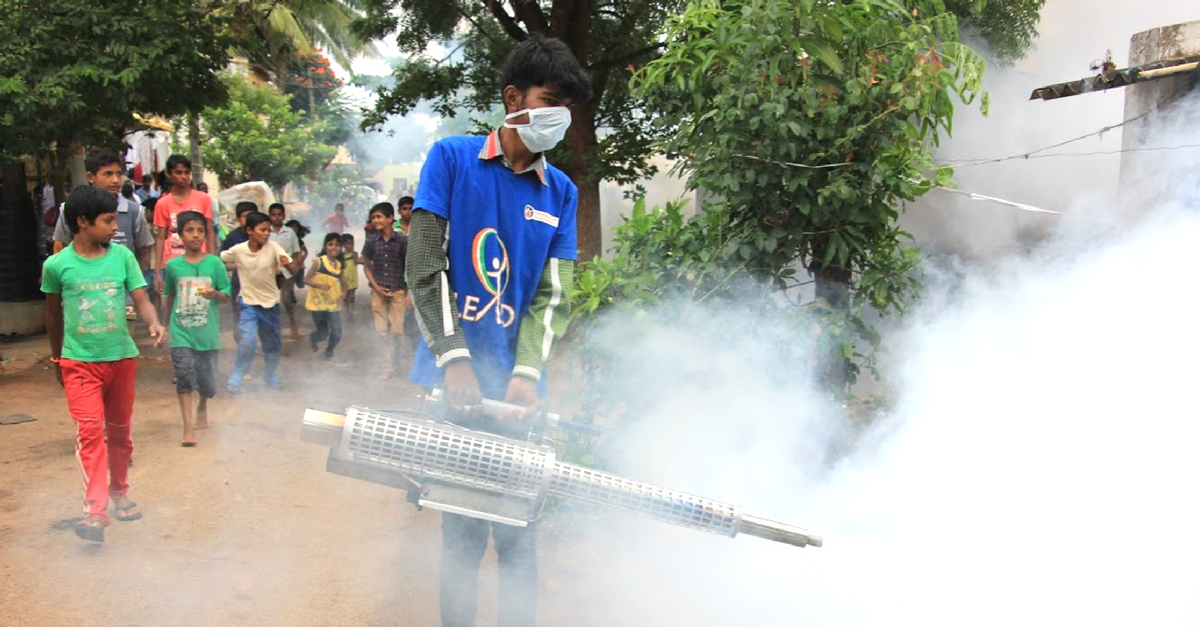
Since the 2006 Dengue outbreak in India, the mosquito-borne tropical disease has become a major public health threat, and the number of annual casualties have drastically increased. What makes the disease so endemic in India is the widespread presence of mosquitoes across cities and towns at large, thanks to irregular garbage collection, and the lack of reliable sanitation.
In this situation, keeping one’s surroundings clean to control a dengue outbreak is extremely imperative as every nook and corner with standing water, including puddles, water tanks, containers and old tires, is a potential breeding point for the infectious Aedes aegypti and Aedes albopictus female mosquitoes.
But this is easier said than done. While on the one hand, affluent residential and corporate areas have adequate access to proper garbage collection and regular cleaning drives mobilised by municipal workers, we cannot ignore low-income areas and slums where the possibility of clearing garbage or even employing measures to eradicate mosquito infestations is rare or possibly null.
Understanding this shortcoming and how a large percentage of dengue-related deaths arise from slums and low-income areas, led one 19-year-old college student from Hubbali in Karnataka to singlehandedly take up the reins and act for those who can’t afford protective and preventive measures.
Immanuel Pathare is a second year BCom student at Fatima Degree College in the city, who was visibly shaken when few people in his locality passed away due to dengue a year back.
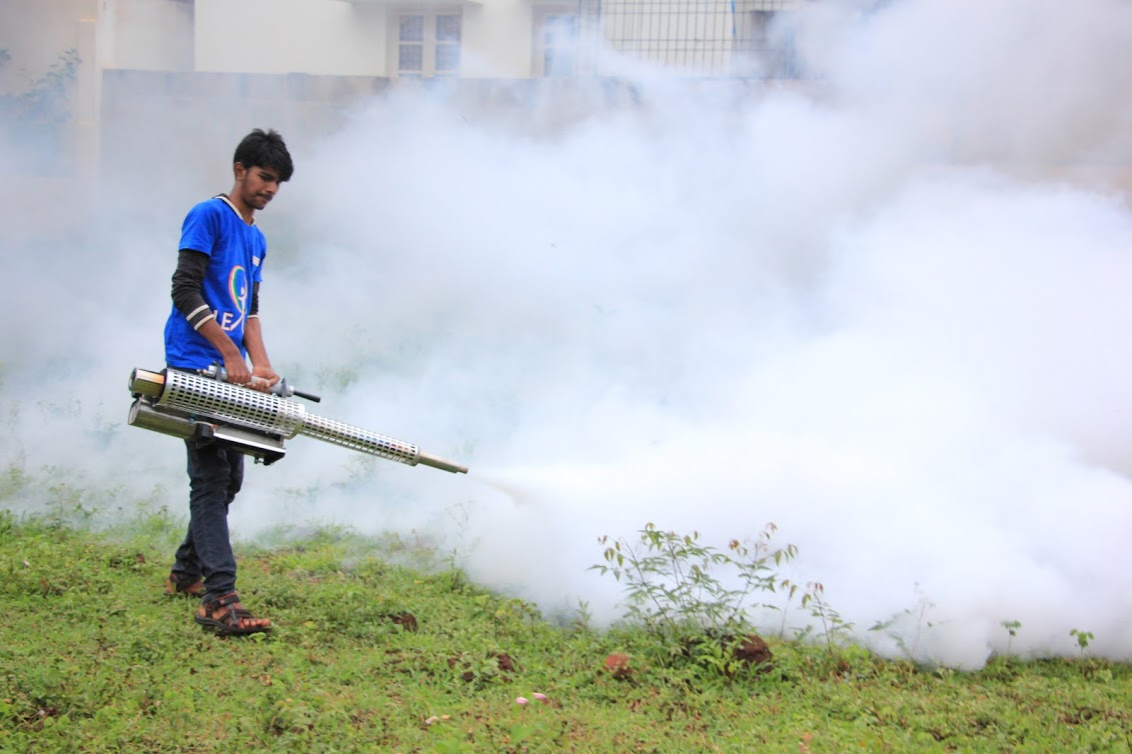
“It could have been me or any one of my family members. This thought made me ponder over how the situation could be brought under control. The usage of mosquito defoggers was a known solution but who would come to defog slums and low-income areas at their personal cost and interest?” says Immanuel to The Better India.
A defogger is not a cheap machine and often, to cut down costs, communities purchase a common one to meet their requirements. This was a daunting issue for Immanuel, who finally found help from the Deshpande Foundation—he is a part of its Leaders Accelerating Development (LEAD) programme.
“The foundation had a defogger, and they were willing to lend it to me. In fact, they also taught me how to use it. This is how I began my defogging crusade across slums in Hubbali and Dharwad last year in October, despite no support from my family members, college or the community,” he remembers.
It was difficult for Immanuel to keep doing what he had initiated. With no support from the local corporation or residents, he was completely on his own with a heavy machine, and its fuel consumption and charges were quite high.
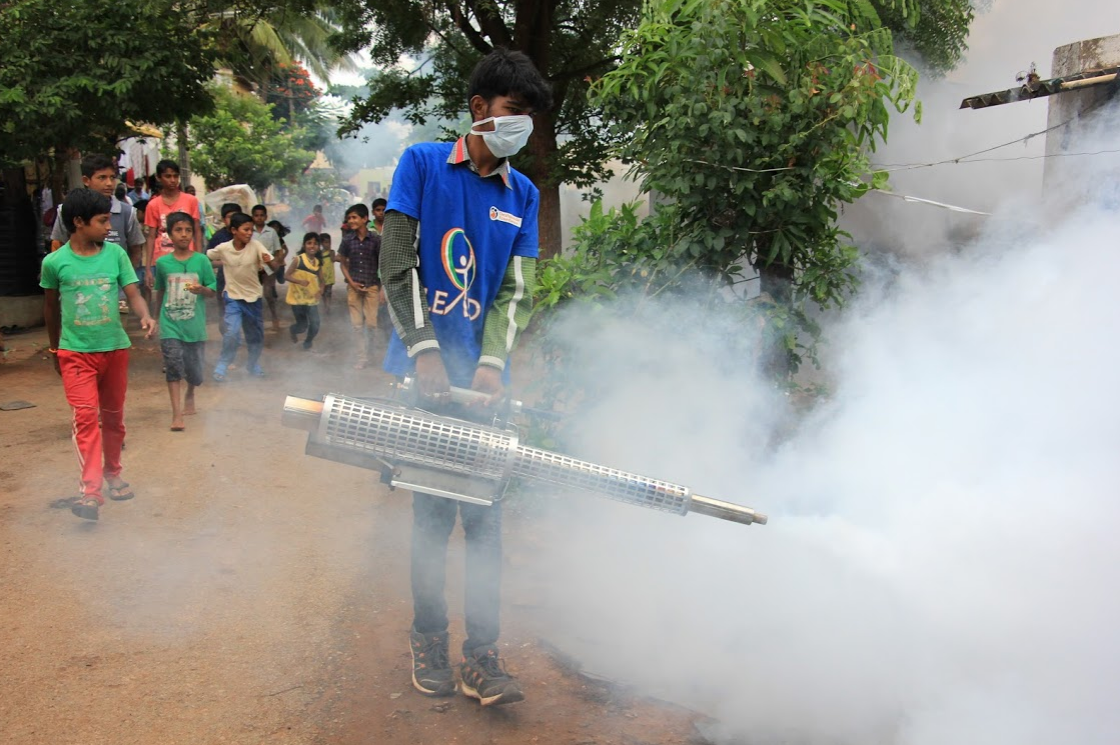
“People kept discouraging me, and this often had a very bad impact, but I kept striving on. I didn’t want anyone else dying because of dengue and criticism was least of my worries. When the costs started getting out of the Foundation’s limits, we started charging people from well-off areas but only for the gas and fuel expenses, which can be easily met if communities team up together,” Immanuel explains.
He also shares that often people end up paying more than what is required. What he does in such situations is to utilise the extra money by going to slums and defogging the areas for free. “So far I’ve managed to reach out to 15 slum pockets and hope that I can continue doing it for free in similar areas where people can’t afford for these services,” Immanuel says.
In a span of three months, these defogging initiatives have managed to reach about 1.5 lakh people, but Immanuel feels that it is a very small number in a city like Hubbali, that has a population of about 11 lakhs.
“But we are doing our level best here and what we really need here is for the people to become more forthcoming to the idea. They need to understand that this is for their own good health and cooperate with us,” he adds.
What Immanuel had started last year is now being emulated in towns like Belgaum, Chitradurga, Davanagere and Vijayapur by volunteers under the Deshpande Foundation, who are being guided by Immanuel himself.
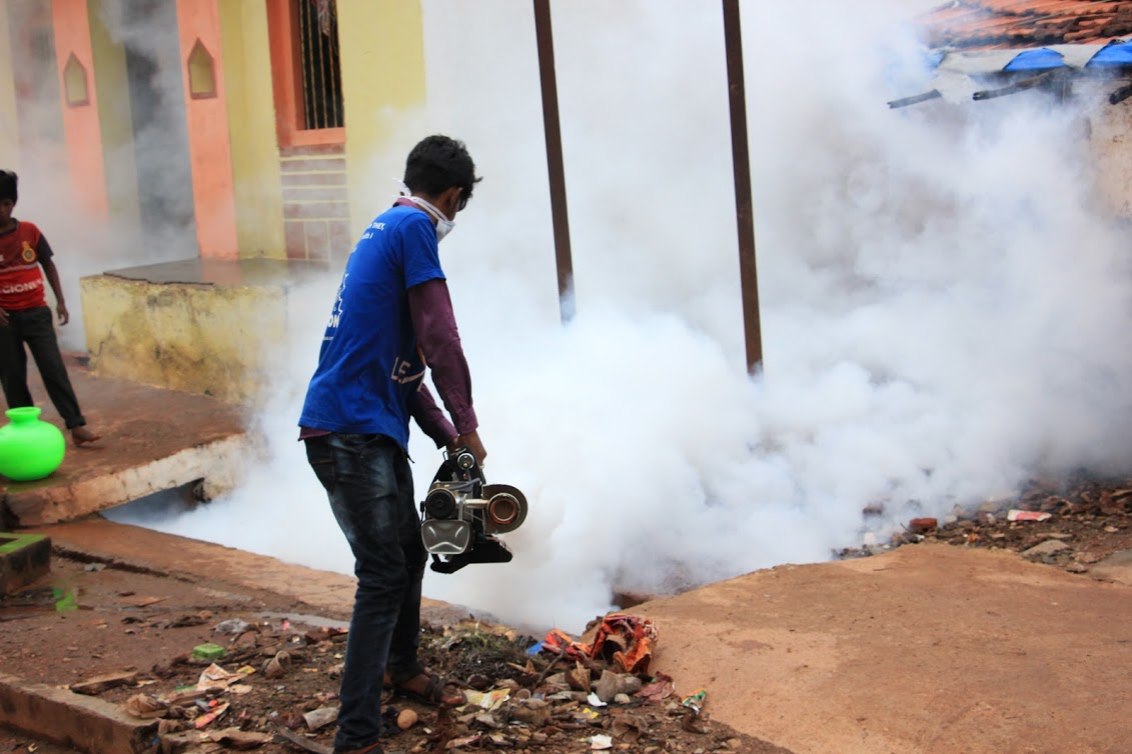
“The team in Belgaum has already started their work while teams in Davanagere and Vijayapur are gearing up to go. We hope the initiative finds greater reach in these areas and inspires others to volunteer too,” a hopeful Immanuel says.
Immanuel has been spending a great deal of time defogging areas in his vicinity, and it often becomes quite difficult for him to make time to study or take care of his health.
“Although my parents were quite against what I’d been doing, they came around after seeing and comprehending the positive outcomes. However, the machine weighs around 40 kilos and heats up to 80 degree Celsius, and I alone have to carry it around on a daily basis. This often leaves me feeling very tired, but I’m willing to continue with this work,” he says.
Everyday Immanuel goes on two defogging rounds. On days when he has to attend college, he sets out by 5:30 a.m. and gets done by 7:00 a.m. Once he returns from college, he heads out for a second round by 5:30 p.m. and winds up by 7:00 p.m.
To continue his defogging activities, Immanuel has sought the help of Milaap, a crowdfunding platform, to meet the daily fuel and gas expenses.
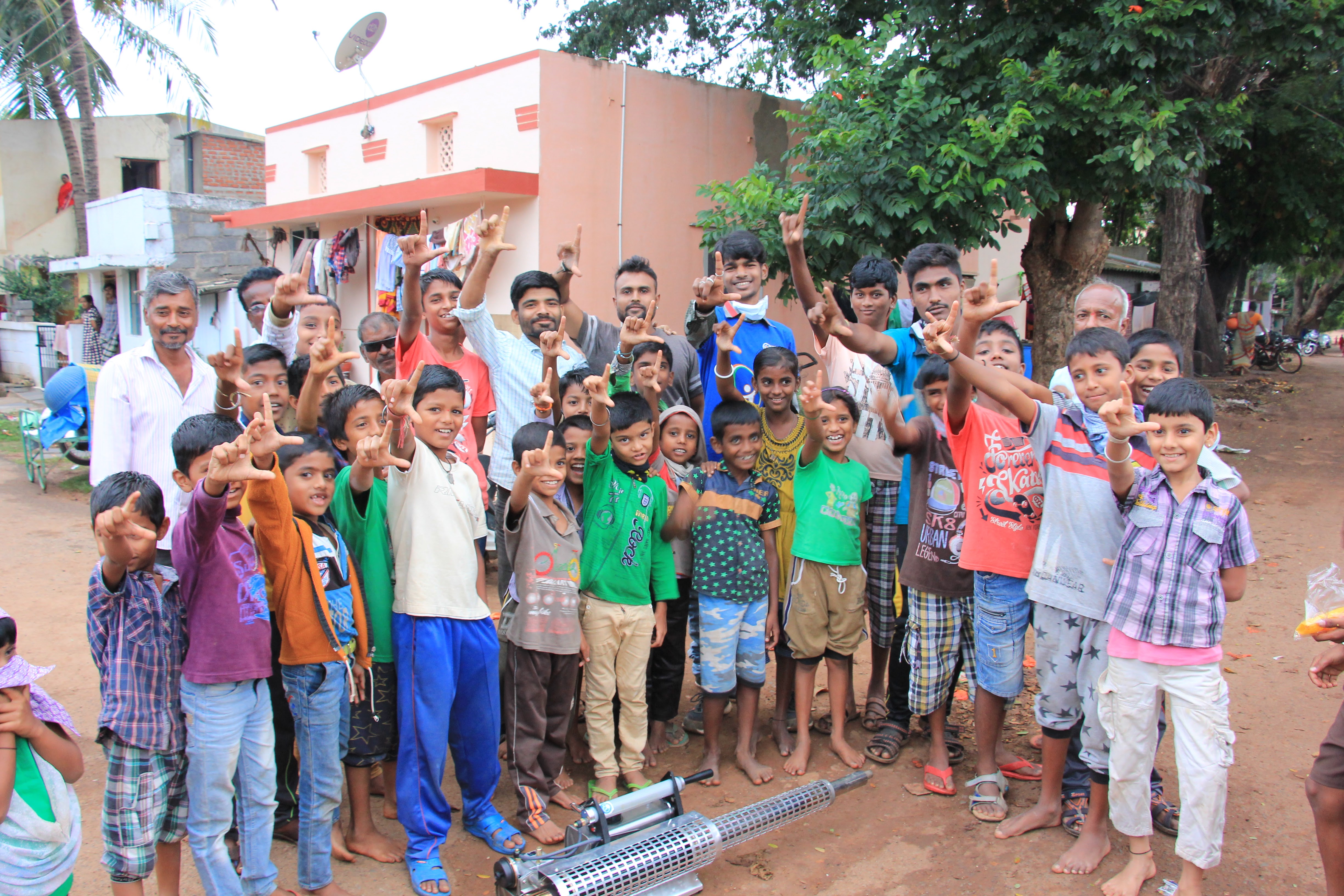
“So far we have only managed to raise ₹18,000 and what we intend to raise is about ₹6 lakhs. Also, if more volunteers would be willing to join this cause, it will make our work more widespread and make more areas free from mosquito infestation and dengue,” he adds.
We salute Immanuel’s determination and persistence. If more people come forward and help this 19-year-old in his endeavours, it won’t be hard to beat dengue, especially in slums.
If you wish to help Immanuel through monetary support, click here. For queries and volunteering-related information, you can call him at 8618411250 or his mentor, Aarya Vishwanath Hallikeri at 7022680645.
(Edited by Gayatri Mishra)
Like this story? Or have something to share?
Write to us: [email protected]
Connect with us on Facebook and Twitter.

Similar Story

Would Your Parents Support You Taking Therapy? This Mental Wellbeing Survey Reveals an Unseen Change
An ITC Fiama survey on mental health shows 80% of Indians trust their parents to back them in seeking therapy, signalling a change in how its perceived by Gen Z, millennials, and their parents.
Read more >
If you found our stories insightful, informative, or even just enjoyable, we invite you to consider making a voluntary payment to support the work we do at The Better India. Your contribution helps us continue producing quality content that educates, inspires, and drives positive change.
Choose one of the payment options below for your contribution-
By paying for the stories you value, you directly contribute to sustaining our efforts focused on making a difference in the world. Together, let's ensure that impactful stories continue to be told and shared, enriching lives and communities alike.
Thank you for your support. Here are some frequently asked questions you might find helpful to know why you are contributing?


This story made me
-
97
-
121
-
89
-
167












